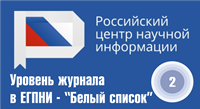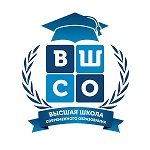Методические подходы к интеграции веб-ресурсов в обучение немецкому языку в младшем школьном возрасте
Аннотация
Обоснование. В условиях цифровизации образования и глобальных изменений в образовательной среде на первый план выходит необходимость использования цифровых инструментов и ресурсов для повышения качества учебного процесса. Обучение иностранным языкам, в том числе немецкому, требует особого внимания, так как язык выступает не только средством коммуникации, но и инструментом межкультурного взаимодействия. В младшем школьном возрасте внедрение веб-ресурсов позволяет повысить интерактивность и доступность обучения, способствуя индивидуализации образовательных маршрутов. Использование мультимодальных цифровых инструментов помогает учитывать познавательные потребности младших школьников, усиливая их мотивацию и познавательную активность. Тем не менее, эффективная интеграция веб-ресурсов сопряжена с необходимостью разработки методологических подходов, направленных на адаптацию содержания к возрастным и когнитивным особенностям школьников, а также на обеспечение педагогического контроля над их самостоятельной деятельностью.
Целью исследования является выявление методологических особенностей интеграции образовательных веб-ресурсов в процесс обучения немецкому языку младших школьников с учётом их когнитивных, возрастных и лингвистических особенностей.
Материалы и методы. Исследование опирается на анализ научных публикаций по методике преподавания иностранных языков и описание функциональных возможностей образовательных платформ. Основными методами исследования выступили сравнительный анализ цифровых образовательных ресурсов, анализ учебных процессов и педагогическое моделирование.
Результаты. В результате исследования разработаны методические подходы к интеграции веб-ресурсов в обучение немецкому языку младших школьников, определены механизмы подбора веб-ресурсов и разработаны подходы к их адаптации под возрастные особенности школьников. Установлено, что использование веб-ресурсов активизирует познавательную деятельность учащихся, способствует росту мотивации и формированию языковой интуиции. Кроме того, определены подходы к организации взаимодействия учителя и учащихся с использованием цифровых образовательных инструментов. Результаты исследования позволяют оптимизировать учебный процесс и улучшить подготовку учащихся по немецкому языку в младшем школьном возрасте.
EDN: ALQIDF
Скачивания
Литература
Список литературы
Алексеева, А. Ю., & Мельникова, О. К. (2017). Популярность информационных технологий в изучении иностранного языка. В сборнике: Информационные технологии в исследовательском пространстве разноструктурных языков: сборник статей I первой международной интернет-конференции молодых ученых (с. 112–114).
Андреева, Д. О. (2021). Основные функции образовательных веб-ресурсов. В сборнике: XLIX Огарёвские чтения (с. 276–282).
Галимова, К. М., & Морозова, О. А. (2022). Использование образовательных веб-ресурсов в процессе обучения иностранным языкам. В сборнике: Наука и образование в условиях мировой нестабильности: проблемы, новые этапы развития (с. 99–103).
Егорова, Д. А., & Зейнутдинова, Э. Ш. (2022). Использование образовательных веб-ресурсов на уроках иностранного языка. В сборнике: Лингводидактика и методика преподавания иностранных языков в свете современных исследований (с. 454–458).
Кадникова, О. В., & Крамаренко, В. А. (2017). Обзор ресурсов для изучения немецкого языка с помощью компьютерной и мобильной техники. Филологический аспект, (6), 77–86.
Кулпина, Т. А. (2022). Использование интернет-ресурсов при обучении немецкому языку. Проблемы романо-германской филологии, педагогики и методики преподавания иностранных языков, (18), 143–146.
Макаренко, А. А., & Онищенко, Ю. Ю. (2023). Веб-инструменты в процессе формирования рецептивных навыков в обучении иностранному языку. В сборнике: Материалы конференции (с. 172–177).
Мюллер, Ю. Э. (2017). Возможности обучающих ресурсов интернета для повышения эффективности обучения немецкому языку. В сборнике: Создание виртуального межкультурного образовательного пространства средствами технологий электронного обучения (с. 160–164).
Нелунова, Е. Д. (2018). Информационные и коммуникационные технологии в обучении иностранному языку в школе. Якутск: Просвещение. 356 с.
Новохатская, О. Э. (2019). Современные технологии обучения иностранным языкам. Педагогика и просвещение, (2), 84–92. https://doi.org/10.7256/2454-0676.2019.2.29025
Ощепкова, Н. А. (2020). Веб-ресурсы на уроке иностранного языка. В сборнике: Вопросы современной филологии и проблемы методики обучения языкам (с. 247–252).
Полежаева, Е. А., & Митрофанова, О. А. (2018). Использование современных онлайн-ресурсов в обучении иностранному языку в вузе на примере немецкого и французского языков. В сборнике: New language. New thinking (с. 413–418).
Сахарова, А. В., & Чугунов, И. А. (2022). Использование образовательных веб-ресурсов в процессе обучения иностранному языку в общеобразовательной организации. В сборнике: Современные проблемы и перспективы развития науки и образования (с. 184–189).
Симонова, М. А., & Сорокина, Т. Г. (2021). Интернет-ресурсы в системе обучения школьников немецкому языку. В сборнике: Актуальные проблемы филологии и методики преподавания иностранных языков (с. 123–125).
Строкань, В. И. (2017). Актуальность использования интернет-ресурсов в обучении иностранному языку. Концепт, (8), 61–66.
Титова, С. В., & Александрова, К. В. (2018). Теоретико-методические основы использования электронных образовательных ресурсов в обучении иностранному языку. Вестник Московского университета, (3), 113–123.
Deutsch für Dich. Получено с https://www.goethe.de/prj/dfd/en/home.cfm (дата обращения: 11.12.2024).
Deutsch-Lernen.com. Получено с https://www.deutsch-lernen.com (дата обращения: 11.12.2024).
Goethe-Institut: Kinderuni. Получено с https://kinderuni.goethe.de (дата обращения: 11.12.2024).
Kika.de. Получено с https://www.kika.de (дата обращения: 11.12.2024).
KINDERSACHE. Получено с https://www.kindersache.de (дата обращения: 11.12.2024).
Planet Schule. Получено с https://www.ardmediathek.de/sendung/planet-schule/Y3JpZDovL3N3ci5kZS8yNTgyNzUw (дата обращения: 11.12.2024).
References
Alexeeva, A. Yu., & Melnikova, O. K. (2017). Popularity of information technologies in foreign language learning. In Information Technologies in the Research Space of Structurally Different Languages: Proceedings of the I International Internet Conference of Young Scientists (pp. 112–114).
Andreyeva, D. O. (2021). Basic functions of educational websites. In XLIX Ogarev Readings (pp. 276–282).
Galimova, K. M., & Morozova, O. A. (2022). Utilization of educational web resources in foreign language teaching. In Science and Education in Times of Global Instability: Problems, New Stages of Development (pp. 99–103).
Egorova, D. A., & Zeinutdinova, E. Sh. (2022). Use of educational web resources in foreign language lessons. In Linguodidactics and Methods of Teaching Foreign Languages in the Light of Modern Research (pp. 454–458).
Kadnikova, O. V., & Kramarenko, V. A. (2017). Overview of resources for learning German using computers and mobile devices. Philological Aspect, (6), 77–86.
Kul'pina, T. A. (2022). Use of Internet resources in teaching German. Problems of Romance-Germanic Philology, Pedagogy and Methods of Teaching Foreign Languages, (18), 143–146.
Makarenko, A. A., & Onischenko, Yu. Yu. (2023). Web tools in the process of forming receptive skills in foreign language teaching. In Conference Proceedings (pp. 172–177).
Müller, Yu. E. (2017). Possibilities of online learning resources for improving the effectiveness of German language teaching. In Creating Virtual Intercultural Educational Spaces Through E-Learning Technologies (pp. 160–164).
Nelunova, E. D. (2018). Information and communication technologies in foreign language teaching at school. Yakutsk: Prosveshcheniye. 356 p.
Novokhatkaya, O. E. (2019). Modern technologies in foreign language teaching. Pedagogy and Enlightenment, (2), 84–92. https://doi.org/10.7256/2454-0676.2019.2.29025
Oschepkova, N. A. (2020). Web resources in foreign language lessons. In Problems of Modern Philology and Methods of Language Teaching (pp. 247–252).
Polezhaeva, E. A., & Mitrofanova, O. A. (2018). Use of modern online resources in teaching foreign languages at university (examples of German and French). In New Language. New Thinking (pp. 413–418).
Sakharova, A. V., & Chugunov, I. A. (2022). Use of educational web resources in foreign language teaching in general education institutions. In Current Problems and Prospects of Science and Education Development (pp. 184–189).
Simonova, M. A., & Sorokina, T. G. (2021). Internet resources in teaching German to schoolchildren. In Actual Problems of Philology and Methods of Teaching Foreign Languages (pp. 123–125).
Strokan', V. I. (2017). Relevance of using Internet resources in foreign language teaching. Koncept, (8), 61–66.
Titova, S. V., & Aleksandrova, K. V. (2018). Theoretical and methodological bases of electronic educational resources utilization in foreign language teaching. Bulletin of Moscow University, (3), 113–123.
Deutsch für Dich. Retrieved December 11, 2024, from https://www.goethe.de/prj/dfd/en/home.cfm
Deutsch-Lernen.com. Retrieved December 11, 2024, from https://www.deutsch-lernen.com
Goethe-Institut: Kinderuni. Retrieved December 11, 2024, from https://kinderuni.goethe.de
Kika.de. Retrieved December 11, 2024, from https://www.kika.de
KINDERSACHE. Retrieved December 11, 2024, from https://www.kindersache.de
Planet Schule. Retrieved December 11, 2024, from https://www.ardmediathek.de/sendung/planet-schule/Y3JpZDovL3N3ci5kZS8yNTgyNzUw
Copyright (c) 2025 Sofya V. Getmanskaya, Rimma A. Safina

Это произведение доступно по лицензии Creative Commons «Attribution-NonCommercial-NoDerivatives» («Атрибуция — Некоммерческое использование — Без производных произведений») 4.0 Всемирная.





































